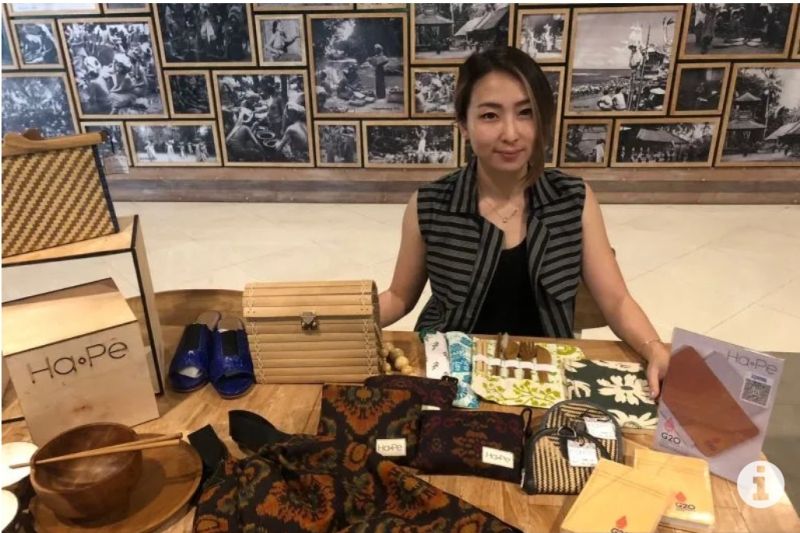“We promote Indonesia’s medicinal plants through creations in the form of souvenirs,” Head of B2P2TOOT, Akhmad Syaikhu, noted in a written statement received here, Thursday.
The medicinal plants comprised anyang-anyang (elaeocarpus grandiflorus sm), winged bean (psophocarpus letragonolobus DC), ules wood (helicteres isora), and jali corn (coix lacryma jobi).
The four are medicinal plants as a result of the B2P2TOOT research that was introduced at the G20 2nd Health Minister Meeting (HMM) in Bali at the end of October 2022, Syaikhu remarked.
He explained that the anyang-anyang plant is empirically used as an antidiabetic and for treating dysentery. Winged bean can help strengthen the immune system against several infections and is known to aid in the prevention of cancer, diabetes, and asthma.
Ules wood is also empirically used as an antipyretic and antioxidant, while jali corn seeds help inhibit the growth of cancer cells and improve hormonal function.
The four medicinal plants are packaged in dozens of red boxes arranged like triangles, placed on the table, and displayed right at the front of the booth.
“The box that is used as a souvenir for the delegates is the unique repository of Indonesian plants (URIP),” he noted.
Related news: Strengthening evidence-based herbal medicine
The 2nd Health Minister Meeting (HMM) that lasted for two days was part of the activities of Indonesia’s G20 Presidency. The highlight of the event, the G20 Summit, will take place in Nusa Dua, Bali, on November 15-16, 2022.
The HMM activity was attended by 190 delegates from G20 member countries and other developed nations, such as Singapore, the United Arab Emirates, Switzerland, the Netherlands, and representatives from several countries representing the region, such as the ASEAN, Pacific Island Forum, African Union, Caribbean Community, and NEPAD.
Several international organizations, such as the WHO, World Bank, GAVI, CEPI, Global Fund, and OECD, also attended the event.
Syaikhu said that the G20 event was a good opportunity for Indonesia to introduce medicinal plants and traditional Indonesian medicines. Hence, at the wellness and tourism side event on November 14, over 50 partners will participate in promoting products made from traditional medicinal plants, including traditional medicine, beauty and spa industry players, and professional organizations in the field of traditional medicine.
The global health architecture is one of the priority issues promoted by the Indonesian government during its presidency at the 2022 G20.
The two other main issues are renewable and sustainable energy transition and digital transformation issues.
Related news: Researchers to standardize herb medicinal properties
In terms of global health architecture, the development and utilization of medicinal plants and traditional medicines align with the government’s programs and become part of national drug resilience.
“Many medicinal raw materials in Indonesia are imported. This is bad. We must be able to independently prepare medicines, including traditional medicines,” he remarked.
In addition to drawing the attention of the G20 delegation, the souvenir is expected to serve as a means of introducing the benefits of medicinal plants that have been used by the Indonesian people as medicine in the form of simplicia, herbal medicine, and phytopharmaca, Syaikhu remarked.
Data from the Bogor Agricultural University (IPB) shows that Indonesia is home to 80 percent of the medicinal plants in the world. It is recorded that some 25 thousand to 30 thousand types of plants have the potential to become medicinal plants.
Hopes are pinned on Indonesian medicinal plants and traditional medicines being able to contribute to global health issues and attract other countries to participate in the development of medicinal plants and traditional medicines.
“Many people have asked from India, Arabia, Brazil, South Korea, and a number of European countries, asking how to get these products even though it is still a raw material,” he remarked.
Related news: Agriculture Ministry to build 2,358 horticultural villages by 2022
Related news: BRIN designing solar-based smart dryer for medicinal herbs
